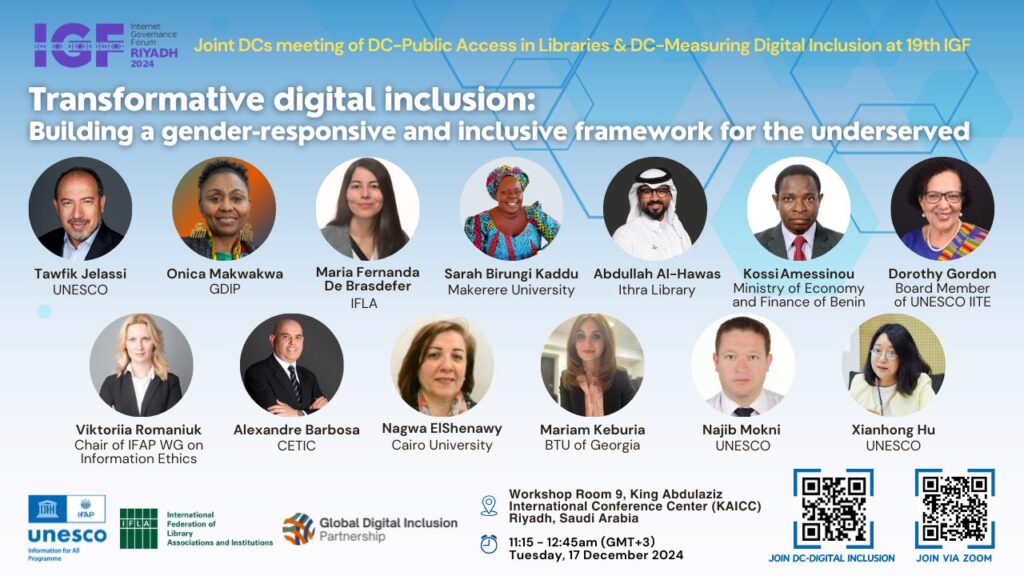Advancing gender-responsive and inclusive frameworks at the Internet Governance Forum 2024
18 December 2024
IFLA continued its engagement with the Internet Governance Forum (IGF) by bringing libraries’ perspectives on digital to the table. The 19th edition of the Forum was hosted by the Kingdom of Saudi Arabia from 15 to 19 December 2024 in Riyadh at the King Abdulaziz International Conference Center (KAICC), under the overarching theme of “Building our Multi-stakeholder Digital Future”.
IFLA continued its partnership and collaboration with UNESCO’s Information for All Programme (IFAP) by hosting a session led by the IGF Dynamic Coalitions from each organisation: the Dynamic Coalition of Public Access in Libraries (DC-PAL) and the Dynamic Coalition on Measuring Digital Inclusion (DC-DI). The session was also co-hosted by members of the Global Digital Inclusion Partnership (GDIP).

Other participants included UN University-EGOV, the Tech and Global Affairs Innovation Hub, CETIC, BTU Georgia, and the Ministry of Economy and Finance of Benin, who spoke about the importance of engaging IGF stakeholders in policy discussions on creating inclusive digital ecosystems accessible to all, especially women, girls, and underserved communities.
Aligned with the IFAP Strategic Plan 2023-2029 and ROAM-X Indicators, the discussion supported the UN’s Roadmap for Digital Cooperation and the Global Digital Compact, and aimed to foster ongoing action and engagement among global stakeholders to promote gender equality and inclusive digital environments.
The library perspective was provided by Dr. Sarah Kaddu from Makerere University, who provided an overview of the impact of libraries on digital literacy in the Nakaseke region in Uganda.
Mr. Abdullah Al Hawas from the Ithra library based in Dammam, Saudi Arabia also provided a vision on how the library contributes to sustainable development goals and inclusivity in the region.
Key points and calls to action that emerged from the session included the following:
- The importance of joining forces with other stakeholders to create impact that leaves no one behind;
- The relevance of a perspective that looks beyond internet access, and includes gender and other inclusivity dimensions;
- A call to cooperation between participants of the session to seek long-term initiatives that address systemic change.